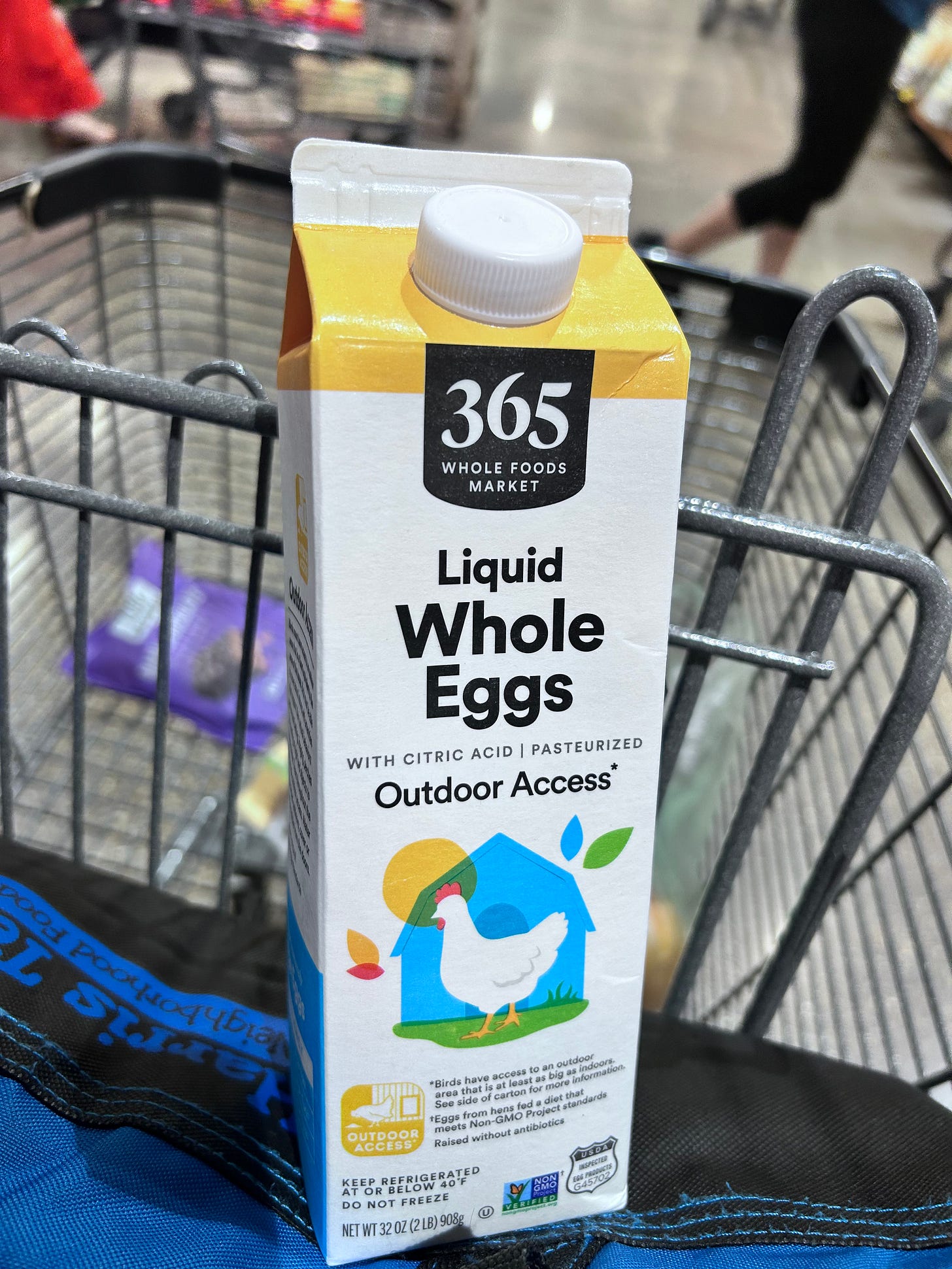No such thing as a bad egg
Why I need an emotional-support hen
I stopped by Whole Foods this afternoon, not because I was grocery shopping, but because I like to see spendthrifts grazing in their natural habitat.
As I prowled the aisles listening to all the Karens arguing with their little Bodhis and Sloanes, I remembered that I needed eggs, so I wandered over to the dairy section to see if I could arrange financing.
I normally get Egg Beaters, but I knew that would be much too violent for Whole Foods. Their customers want eggs for gluten-free, goat-cheese-and-truffle omelettes, not Streetcar Named Desire on a plate.
But I did find something called, “Liquid Whole Eggs with Citric Acid” — eggs with an additive designed to extend the shelf life. (The eggs’, not mine.)
As I tossed the Liquid Whole Eggs with Citric Acid into the cart, the label caught my eye — these weren’t just ordinary sit-under-a-chicken eggs. These eggs were raised with “Outdoor Access.”
These are special eggs, raised by chickens so pretentious they don’t live in coops — they have co-ops.
My first thought was that maybe Whole Foods could knock a few bucks off if they just propped the eggs up near a window or something. I might even cough up a few extra pennies for eggs raised near a southern exposure.
I was still turning this over in my mind when I hit the cruelty-free chocolate aisle. How much “access” does an egg need? Do emotional-support hens roll them outside a couple times a day?
But more important, are they happy? Do they feel self-actualized? Do they actually crack the shells to get to the liquid, or is there some kind of Reiki that releases it?
I noticed that these Liquid Whole Eggs with Citric Acid carry no USDA grade. Probably too judgmental. Whole Foods knows that grading eggs might be damaging to their psyches. This way, there are no bad eggs.
Anyway, I’m headed over to Starbucks now, where I hear all the coffee beans attend Montessori before shipment.




Hahaha the carefully worded "...outdoor area that is at least as big as indoors." without noting either space is probably about 5 square inches. While I could have chickens here, I'm too lazy and too cheap to properly care for and feed them in such a way as to make a difference to their laying product. Am I cruel? Sure, if you count that I'm quite willing to kill a living thing to eat it, and that applies to both mobile (birds, beasts, aqua-inclined) as well as those that put down roots. I never quite understand the justification that yanking a carrot out of the ground is being less of a predator than fishing or hunting. Something still dies, and any classification or which being is more justifiably undeserving is something we make up.
Kal, you've opened a whole new cruelty-free-world to me. I'm sure I'm a better person for it. Thank you. <grin>